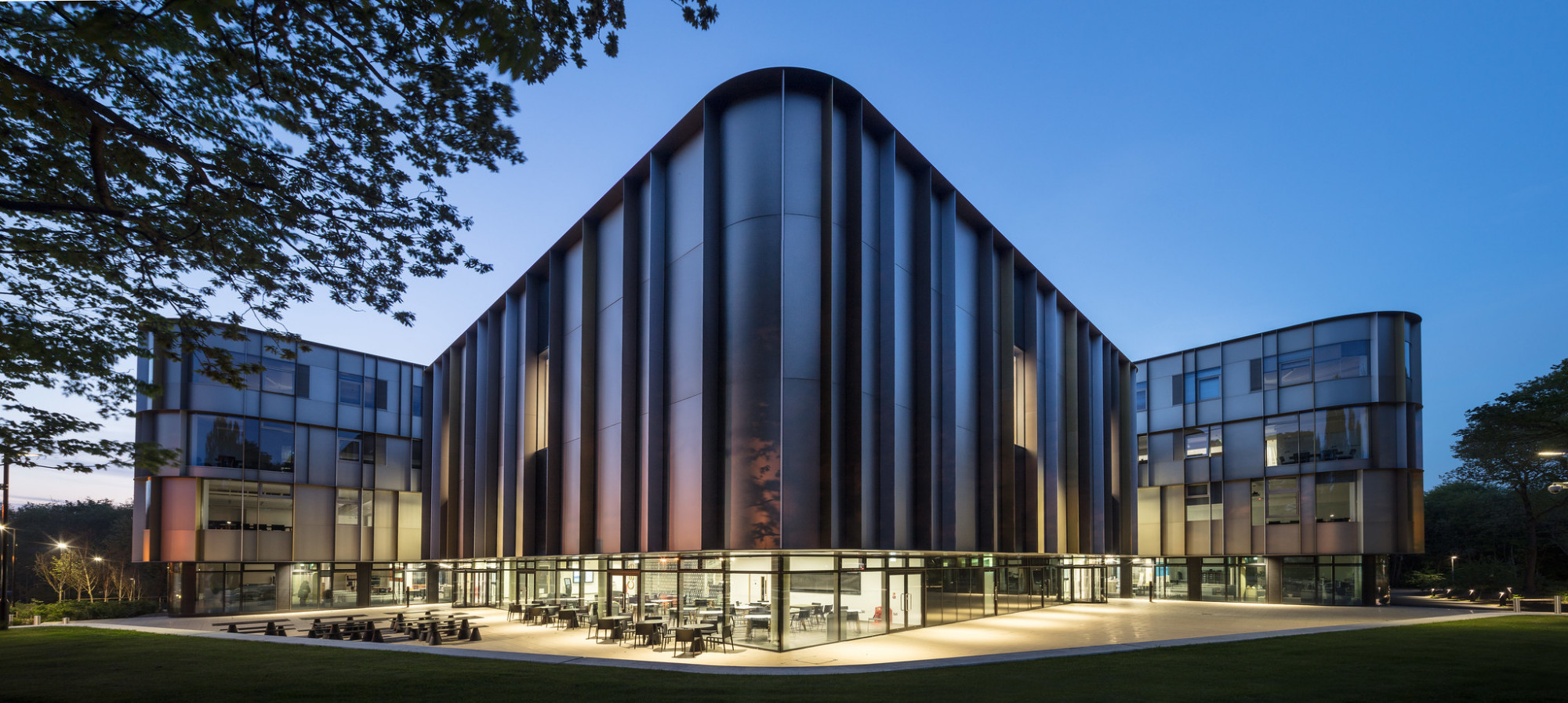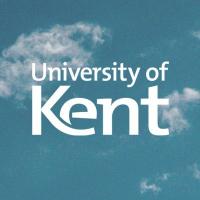Digital Design - BSc (Hons)
Are you excited by design and the creative possibilities of new technology? Do you want to learn how to blend the two together? Our Digital Design degree allows you to develop your design and technical skills, helping you to bring your ideas to life whilst equipping you with skills sought after by employers.
Overview
On our Digital Design degree, you take a practical and theoretical approach to design. You will develop the technical skills you need to showcase your creativity. Using the latest technology, you can work with a broad range of design assets and immersive technologies including audio, still and moving image, 3D, and interactive interfaces, to create new experiences for audiences, setting yourself up for an exciting and fulfilling career in the creative industries.
Teaching in the School of Engineering has been rated as excellent. It is taught by a team of experts and industry professionals in the areas of 3D production, online design immersive experiences and interactive applications, and human-computer interaction. Most modules consist of a mixture of lectures, seminars, practical workshops and computer sessions. All modules are continuously assessed.
Campus Information
Canterbury
Our campus is surrounded by beautiful woodlands and overlooks the charming city of Canterbury. We have excellent transport links on campus or you can stroll into town on foot.
Intakes
- Sep
Application Processing Time in Days: 30
Minimum English Language Requirements
| English Level Description | IELTS (1.0 -9.0) | TOEFL IBT (0-120) | TOEFL CBT (0-300) | PTE (10-90) | |
|---|---|---|---|---|---|
| Expert | 9 | 120 | 297-300 | 86-90 | |
| Very Good | 8.5 | 115-119 | 280-293 | 83-86 | |
| Very Good | 8 | 110-114 | 270-280 | 79-83 | |
| Good | 7.5 | 102-109 | 253-267 | 73-79 | |
| Good | 7 | 94-101 | 240-253 | 65-73 | |
| Competent | 6.5 | 79-93 | 213-233 | 58-65 | |
| Competent | 6 | 60-78 | 170-210 | 50-58 | |
| Modest | 5.5 | 46-59 | 133-210 | 43-50 | |
| Modest | 5 | 35-45 | 107-133 | 36-43 | |
| Limited | 4 | 32-34 | 97-103 | 30-36 | |
| Extremely Limited | < 4 | < 31 | < 93 | < 30 |
Job Opportunity Potential
In these appointments, you will have up to 45 minutes to talk to a careers adviser about whatever career-related topic is important to you. Topics of conversation could include:
- I have no idea what I want to do after I graduate, what are my options?
- What jobs can I get with my degree?
- How do my skills fit in the labour market?
- I’m interested in taking a gap year after I graduate and I want to plan something employers will value.
- I’m thinking of leaving/changing my course and want to talk through the pros and cons.
- I’m interested in doing a masters or PhD, what are my options?
- I’m not sure how to disclose sensitive information to an employer.
A guidance interview is:
Impartial
A careers adviser will not recommend one route to you over another. They are there to help you explore the options objectively.
Challenging
Careers advisers may question your goals and help you to look at the disadvantages as well as the advantages. This is not to put you off, but to help ensure you have thought it through.
Supportive
The meetings are very informal and relaxed. Careers advisers are there to help you discuss things in a safe environment.
Part of a process
Career choice is a process not an event. A guidance interview is a good starting point but you will need to do further research and continuously update your action plan.
PSW Opportunity
- 2 Years PSW is applicable after the course. (Bachelors & Masters only)
Admission Requirement / Eligibility Criteria
Entry requirements
Qualification requirements
A good honours degree (minimum 2:2) from the UK or an equivalent internationally recognised qualification in a non-business-related discipline.
All applicants are considered on an individual basis and additional qualifications, professional qualifications and relevant experience may also be taken into account when considering applications.
India
For entry to a Kent postgraduate degree programme (Master’s), Indian students typically need to have completed a three or four-year undergraduate degree (Honours Bachelor degree or Professional degree) at an accredited university or college. General Bachelor degrees may sometimes be considered. Exact requirements will depend on the postgraduate degree you are applying for and the institution you have studied at.
- For programmes that require a 2:1, we usually ask for a First Class degree, a final CGPA of 6.0/10, or 60%. Students from top institutions may be considered with a high Second Class degree, a final CGPA of 5.5/10, or 55%.
- For programmes that require a 2:2, we usually ask for a high Second Class degree, a final CGPA of 5.5/10, or 55%
Some, but not all, postgraduate programmes require your undergraduate degree to have a related major. Some postgraduate programmes may require work experience in a relevant field or at a certain level.
Bangladesh
For entry to a Kent postgraduate degree programme (Master’s), Bangladeshi students typically need to have completed a Bachelor of Arts, Science and Commerce (Honours) or a Bachelor degree (Professional subject) awarded after four years of study by a ranked institution.
Exact requirements will depend on the postgraduate degree you are applying for and the institution you have studied at.
- For programmes that require a 2:1, we usually ask for a final CGPA of 3.5/4.0, or 70%
- For programmes that require a 2:2, we usually ask for a final CGPA of 3.0/4.0, or 60%
Applicants will also be considered with a Master of Arts, Science or Commerce from a recognised university.
- For programmes that require a 2:1, we usually ask for a final CGPA of 3.0/4.0, or 60%
- For programmes that require a 2:2, we usually ask for a final CGPA of 2.75/4.0, or 55%
Some, but not all, postgraduate programmes require your undergraduate degree to have a related major. Some postgraduate programmes may require work experience in a relevant field or at a certain level.
Sri Lanka
For entry to a Kent postgraduate degree programme (Master’s), Sri Lankan students typically need to have completed a Four-year Special Degree/ Bachelor of Arts/ Science or Professional Degree from a recognised university. Exact requirements will depend on the postgraduate degree you are applying for and the undergraduate degree you have studied.
- For programmes that require a 2:1, we usually ask for an Upper Second Class degree
- For programmes that require a 2:2, we usually ask for a Lower Second Class degree
Applicants may also be considered with one of the following:
- Four-year Special/Honours Bachelor of Technology Degree from a recognised institution with Upper or Lower Second Class, on a case-by-case basis
- Three-year General Degree from a recognised institution with First Class, on a case-by-case basis
- Postgraduate Diploma from a recognised university with a final GPA of at least 3.0/4.0
Some, but not all, postgraduate programmes require your undergraduate degree to have a related major. Some postgraduate programmes may require work experience in a relevant field or at a certain level.
IELTS (including IELTS Indicator) - PTE Academic - CAE/CPE - TOEFL iBT
Undergraduate degree - 6.5 overall (with a minimum of 6.0 in R&W; 5.5 in S&L) - 62 overall with 60 in each subtest - 176 overall (with a minimum of 169 in R&W; 162 in S&L) - 90 overall (with a minimum of 22 in R; 21 in W; 17 in L; 20 in S
- Course Code: W285
- Course Type: Full Time
- Course Level: Bachelors/UG Degree
- Duration: 03 Year
-
Total Tuition Fee:
63600 GBP
Annual Cost of Living: 9207 GBP
Application Fee: 50 GBP
Similar Programs
- Spatial and Interior Design - BA (Hons) at University of Kent
- Sociology, Social Policy and Social Change - BA (Hons) at University of Kent
- Sociology and Politics - BA (Hons) at University of Kent
- Sociology and Economics - BA (Hons) at University of Kent
- Sociology - BA (Hons) with Quantitative Research at University of Kent
- Sociology - BA (Hons) at University of Kent

